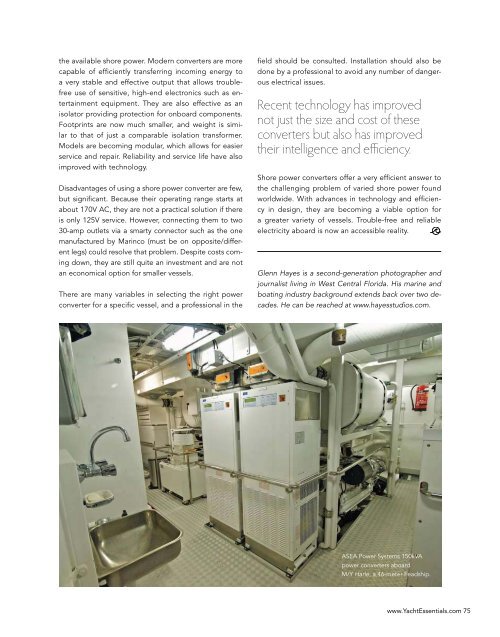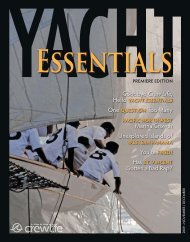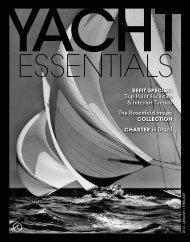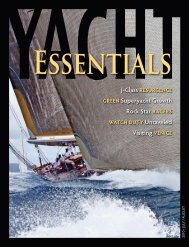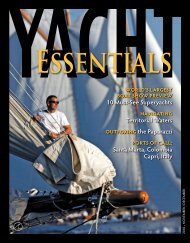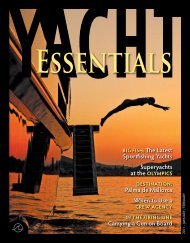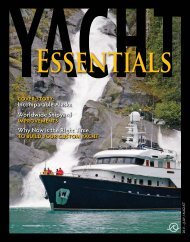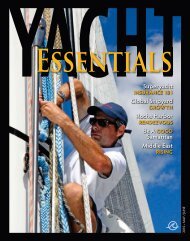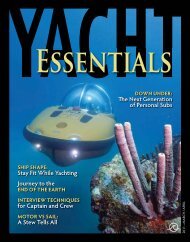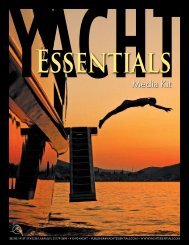photo contest - Yacht Essentials
photo contest - Yacht Essentials
photo contest - Yacht Essentials
Create successful ePaper yourself
Turn your PDF publications into a flip-book with our unique Google optimized e-Paper software.
the available shore power. Modern converters are more<br />
capable of efficiently transferring incoming energy to<br />
a very stable and effective output that allows troublefree<br />
use of sensitive, high-end electronics such as entertainment<br />
equipment. They are also effective as an<br />
isolator providing protection for onboard components.<br />
Footprints are now much smaller, and weight is similar<br />
to that of just a comparable isolation transformer.<br />
Models are becoming modular, which allows for easier<br />
service and repair. Reliability and service life have also<br />
improved with technology.<br />
Disadvantages of using a shore power converter are few,<br />
but significant. Because their operating range starts at<br />
about 170V AC, they are not a practical solution if there<br />
is only 125V service. However, connecting them to two<br />
30-amp outlets via a smarty connector such as the one<br />
manufactured by Marinco (must be on opposite/different<br />
legs) could resolve that problem. Despite costs coming<br />
down, they are still quite an investment and are not<br />
an economical option for smaller vessels.<br />
There are many variables in selecting the right power<br />
converter for a specific vessel, and a professional in the<br />
field should be consulted. Installation should also be<br />
done by a professional to avoid any number of dangerous<br />
electrical issues.<br />
Recent technology has improved<br />
not just the size and cost of these<br />
converters but also has improved<br />
their intelligence and efficiency.<br />
Shore power converters offer a very efficient answer to<br />
the challenging problem of varied shore power found<br />
worldwide. With advances in technology and efficiency<br />
in design, they are becoming a viable option for<br />
a greater variety of vessels. Trouble-free and reliable<br />
electricity aboard is now an accessible reality.<br />
Glenn Hayes is a second-generation <strong>photo</strong>grapher and<br />
journalist living in West Central Florida. His marine and<br />
boating industry background extends back over two decades.<br />
He can be reached at www.hayesstudios.com.<br />
ASEA Power Systems 150kVA<br />
power converters aboard<br />
M/Y Harle, a 46-meter Feadship.<br />
www.<strong>Yacht</strong><strong>Essentials</strong>.com 75


